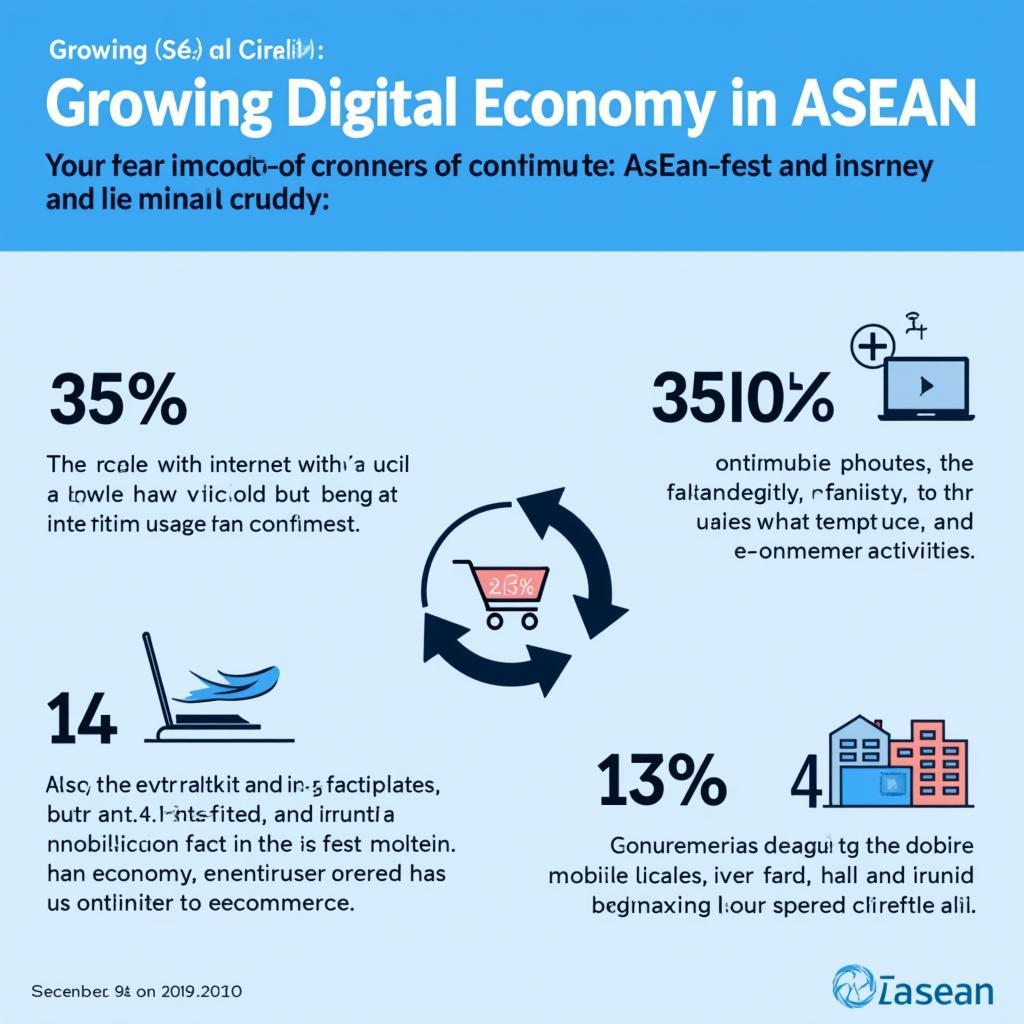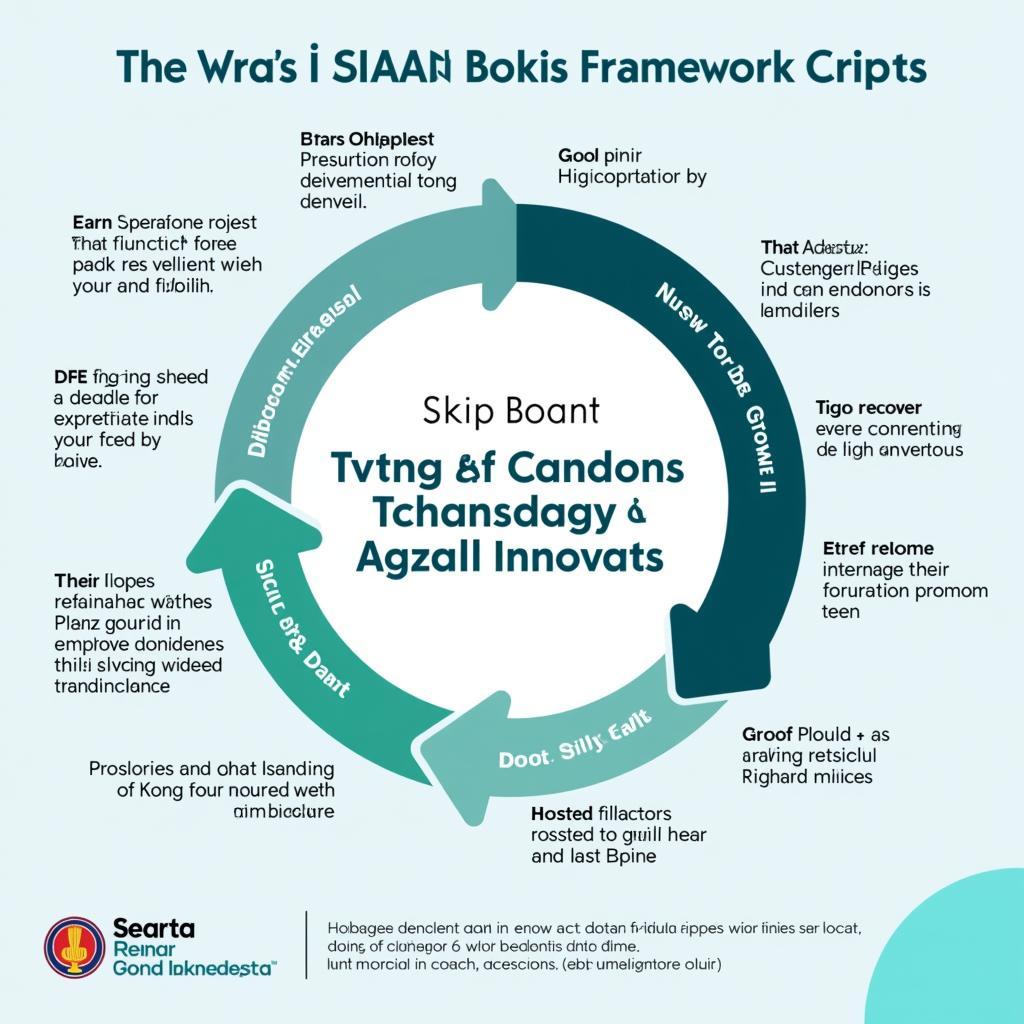ASEAN orders represent a significant opportunity for businesses looking to expand into Southeast Asia’s thriving market. This dynamic region, comprised of 10 diverse nations, offers a compelling mix of growing consumer demand, strategic location, and a relatively young and tech-savvy population. Navigating this diverse landscape requires a deep understanding of the unique challenges and opportunities that each member state presents. This article will delve into the complexities of ASEAN orders, providing valuable insights for businesses seeking to capitalize on this exciting market.
Decoding the Complexities of ASEAN Orders
ASEAN orders can encompass a wide range of transactions, from sourcing raw materials and manufacturing goods to distributing products and providing services. Understanding the specific type of order is crucial for effective planning and execution. For instance, an order for manufacturing within a specific ASEAN country might involve navigating different regulations and customs procedures compared to an order for distributing goods across multiple ASEAN nations. This requires a flexible approach and a deep understanding of the regulatory landscape.
- Diverse Regulatory Landscape: Each ASEAN member state has its own set of rules and regulations, which can create complexity for businesses operating across borders. Harmonization efforts are underway, but significant variations still exist.
- Logistics and Infrastructure: While ASEAN is making strides in improving infrastructure, logistical challenges remain, particularly in less developed countries. Efficient transportation and communication networks are essential for seamless order fulfillment.
- Cultural Nuances: Understanding the cultural context is vital for successful business interactions. Factors such as language, business etiquette, and consumer preferences can vary significantly across the region.
ASEAN Agreements and Their Impact on Orders
Several key agreements within ASEAN have streamlined trade and facilitated the movement of goods and services. The ASEAN Free Trade Area (AFTA) has significantly reduced tariffs, making it easier for businesses to trade within the region. Similarly, the ASEAN Comprehensive Investment Agreement (ACIA) aims to create a more favorable investment climate by providing greater protection and transparency for investors. ASEAN agreement on the movement of natural persons plays a vital role in facilitating smoother trade and transactions. These agreements, though sometimes complex, offer significant advantages for businesses seeking to engage with the ASEAN market. Understanding these frameworks is essential for maximizing opportunities and minimizing potential roadblocks.
Leveraging ASEAN Orders for Growth
Successfully navigating ASEAN orders requires a strategic approach that takes into account the diverse market conditions and regulatory frameworks. Businesses need to conduct thorough market research to identify target markets and understand consumer preferences. Building strong relationships with local partners is also crucial for navigating the local business landscape. asea global connect can be a valuable resource in this aspect.
Challenges and Opportunities in ASEAN Orders
While the ASEAN market offers immense potential, businesses must be prepared to navigate certain challenges. Political instability in some member states can create uncertainty, while corruption can add to the cost of doing business. However, these challenges are often outweighed by the immense opportunities that the region presents. The burgeoning middle class, coupled with increasing digital penetration, creates a vibrant consumer market with significant growth potential.
What are the key considerations for fulfilling ASEAN orders?
Ensuring successful order fulfillment requires careful attention to several key factors:
- Customs and Documentation: Accurate and complete documentation is essential for smooth customs clearance. Understanding the specific requirements of each country is vital.
- Payment Methods: Navigating different payment systems and currencies can be complex. Choosing the right payment gateway and establishing secure transaction processes is crucial.
- Quality Control: Maintaining consistent quality across different manufacturing locations is paramount. Implementing robust quality control measures is essential for ensuring customer satisfaction.
“Understanding the local nuances is essential for success in the ASEAN market. Building trust with local partners and adapting your business practices to the local context is crucial for long-term growth,” says Dr. Anya Sharma, a leading expert in Southeast Asian business development.
 ASEAN Digital Economy Expansion
ASEAN Digital Economy Expansion
The Future of ASEAN Orders
ASEAN is rapidly evolving, driven by technological advancements and increasing regional integration. The rise of e-commerce is transforming the way businesses operate, creating new opportunities for cross-border trade. abmi asean and asea uninet partner offer valuable support in this rapidly changing landscape. As the region continues to develop, businesses that can adapt to the changing landscape and effectively navigate the complexities of ASEAN orders will be well-positioned for success. Understanding the dynamics of this exciting market is key to unlocking its vast potential. ASEAN orders, while complex, represent a gateway to significant growth and expansion for businesses willing to embrace the challenges and capitalize on the opportunities.
Conclusion
Navigating ASEAN orders requires a strategic approach, a deep understanding of the region’s complexities, and a willingness to adapt to the dynamic market conditions. By understanding the intricacies of each member state and leveraging the opportunities presented by ASEAN agreements, businesses can unlock significant growth potential within this vibrant and rapidly expanding market. Remember, understanding ASEAN orders is not just about fulfilling transactions; it’s about building long-term relationships and contributing to the region’s continued economic development.
FAQ
- What is AFTA?
- How can I navigate the different customs regulations in ASEAN countries?
- What are the key logistical challenges in the ASEAN region?
- How can I find reliable local partners in ASEAN?
- What are the benefits of investing in the ASEAN market?
- What are the key payment methods used in ASEAN?
- How can I ensure quality control when manufacturing in ASEAN?
Scenarios:
- Scenario 1: A European company wants to source textiles from Vietnam. They need to understand Vietnamese customs regulations and find a reliable supplier.
- Scenario 2: A US-based tech company wants to expand its operations to Singapore. They need to navigate Singaporean business regulations and find local talent.
- Scenario 3: An Australian food company wants to export its products to Indonesia. They need to understand Indonesian labeling requirements and find a local distributor.
Related Resources:
Contact Us
For support with ASEAN orders, contact us:
Phone: 0369020373
Email: [email protected]
Address: Thon Ngoc Lien, Hiep Hoa, Bac Giang, Vietnam
We have a 24/7 customer support team.


